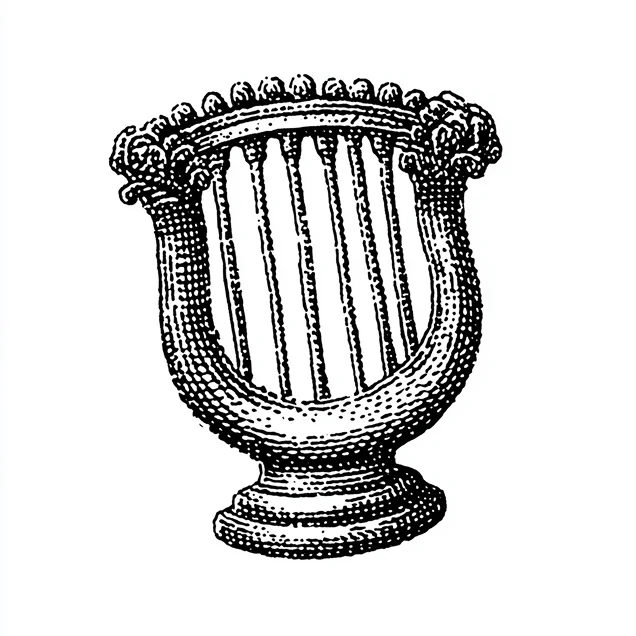Advisory services are provided by Titan Global Capital Management USA LLC ("Titan"), an SEC registered investment adviser. Please refer to Titan's Program Brochure for important additional information. Titan’s affiliate, Titan Global Technologies LLC (“TGT”), is an SEC-registered broker-dealer. Both Titan and TGT are subsidiaries of Titan Global Capital Management, Inc. This content is for informational purposes only and is not investment or financial advice, tax or legal advice, an offer, solicitation of an offer, or advice to buy or sell securities or other products offered by Titan, TGT, or any third party. Any mention of specific securities, asset classes, or investment strategies does not constitute a recommendation or endorsement.
Any descriptors used should not be construed as a promise of quality or a guarantee of performance. Statements made in these communications represent opinions and conjecture for illustrative purposes only, and should not be construed as a guarantee of future results. Communications may contain forward-looking statements, which reflect our current views with respect to future events and financial performance. These forward-looking statements are subject to certain risks and uncertainties that could cause actual results to differ materially from those contained in the forward-looking statements. We do not undertake any obligation to update or revise publicly any forward-looking statements, whether as a result of new information, future events, or otherwise.
Smart Treasury is a proprietary strategy that invests client funds predominantly in treasury money market funds. Certain funds have specific investment minimums, which can be up to $3,000. Investors who invest amounts below these minimums may experience lower yields. Yields are subject to change and will fluctuate over time. Smart Treasury is offered by Titan as one of its RIA product offerings. Smart Treasury strives for tax optimization and actual outcomes may vary. While Titan can provide general tax information, any information provided should not be taken as tax advice as Titan is not a tax professional. Consult a tax professional for personalized tax advice. Investments in Smart Treasury are not deposits and are not FDIC insured, unlike savings accounts and other non-investment accounts. Investments are not bank guaranteed, and may lose value. View Smart Treasury risks and disclosures at titan.com/smart-treasury-disclosures.
Investments with exposure to crypto assets, including crypto ETFs, are only suitable for investors who are willing to bear the risk of extreme volatility and substantial losses, including the potential for sharp drawdowns as they still carry inherent risk associated with cryptocurrencies. Extreme volatility in the future, including further declines in the trading prices of bitcoin and ether, could have a material adverse effect on the value of the crypto ETF shares and the shares could lose all or substantially all of their value. Such investments may be negatively impacted by market events, including liquidity issues, bankruptcies, and heightened regulatory scrutiny. You are solely responsible for evaluating the merits and risks before making any investment decisions, including consideration of any information, materials, or third-party content provided.
Various Registered Investment Company products (“Third Party Funds”) are offered by third-party fund families and investment companies on Titan’s platform as one of many potential investment options available to Titan’s clients, that may or may not be recommended based on an individual client’s investment objectives, risk tolerance, or suitability. Third Party Funds that are available on Titan’s platform are interval funds. Investments in interval funds are highly speculative and subject to a lack of liquidity that is generally available in other types of investments. Please review the Third Party Fund’s prospectus, available on the Titan platform, in its entirety for a full list of risks associated with investing in the Third Party Fund before making any investment decisions. Liquidity and distributions are not guaranteed, and are subject to availability at the discretion of the Third Party Fund. You may view the prospectuses for any Third Party Fund mentioned in this content through their respective websites.
All investments involve risk, and the past performance of a security, particular strategy, or financial product does not guarantee future results or returns. Investment growth is not guaranteed. No strategy or asset guarantees the accumulation of wealth, and any potential benefits are subject to market, tax, and individual financial risks. Certain investments are not suitable for all investors. Diversification is a portfolio allocation strategy that seeks to minimize inherent risks by holding assets that are not entirely correlated. Keep in mind that while diversification may help spread risk, it does not ensure a profit or protect against loss. There is no guarantee that any particular asset allocation or mix of funds will meet your investment objectives or provide you with a given level of income. There is always the potential of losing money when you invest in securities or other financial products. Investors should consider their investment objectives and risks carefully before investing. The price of a given security may increase or decrease based on market conditions and clients may lose money, including their original investment and principal. The information provided does not take into account the specific objectives, financial situation, or particular needs of any specific person. Investment decisions should be based on individual financial circumstances, objectives, and risk tolerance. Investments in securities are not FDIC insured. Please visit www.titan.com/legal for important disclosures.







